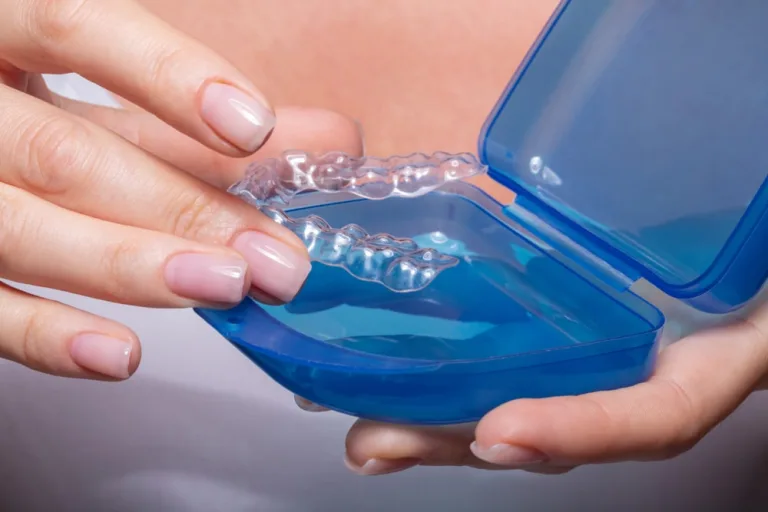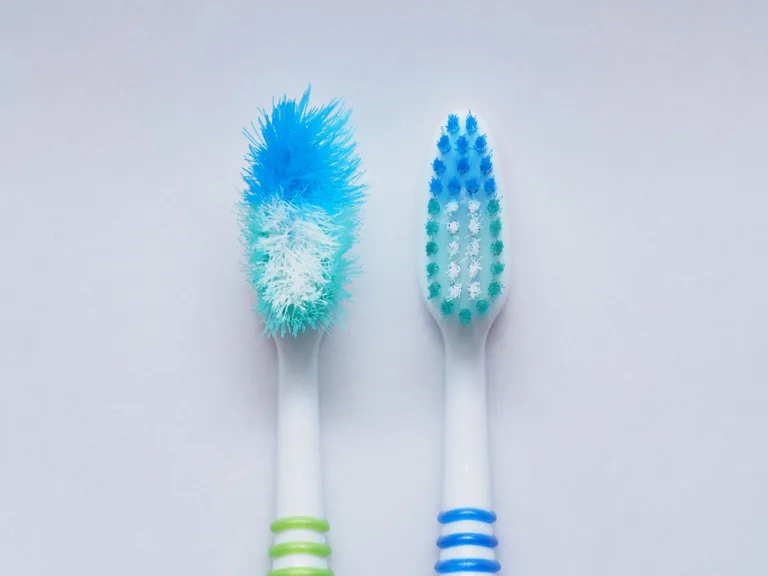Sensitive teeth aren’t just a minor irritation they are a serious problem. If you’ve ever had the disappointment of trying to eat an ice cream cone only to be met with pain in your teeth that force you to throw the sweet treat away, you know what we mean.
Fortunately, there are lots of non-invasive ways to find quick relief from the pain and frustration of sensitive teeth. Before we go into that, though, let’s talk about what’s causing the sensitivity to occur in the first place.
Why So Sensitive?
Teeth can become sensitive for a variety of reasons. Tooth decay, worn-out fillings, overly aggressive brushing, and gum disease are just some factors that could lead to sensitivity.
When the enamel on your teeth begins to break down, your teeth will naturally get more sensitive to hot and cold. The less enamel on a tooth, the easier it is for bacteria and temperature changes to get to the nerve within that tooth and cause you pain.
Preventing the breakdown of enamel before it begins is the number one way to prevent sensitivity. Obviously, that prevention begins with solid oral hygiene practices at home and regular visits to the dentist.
Ways to Find Relief
Despite your best efforts and your rock star-worthy hygiene routine, it can be pretty easy to create a problem with sensitivity. Luckily, there are also plenty of simple ways to overcome the problem permanently and to mask the pain quickly if need be.
1. Strengthen Enamel
Dousing your teeth with fluoride is a great way to rebuild and strengthen tooth enamel. Beyond just brushing twice daily with fluoride toothpaste, you should be getting additional sources. This miracle mineral is found in the drinking water of many major cities and is also naturally found in some foods.
If your teeth are extra sensitive and you need a bit more fluoride than the average Joe, your dentist may prescribe fluoride supplements. Your dentist can also apply fluoride topically to help strengthen your enamel.
Fluoride is not the only way to strengthen your tooth enamel, though. You can also ensure your nutrition is on point. Remineralizing diets are a great place to start. Some foods have been found to prevent demineralization by promoting saliva flow. Cheese and celery, for instance, help to promote saliva development.
Eating an overall healthy diet is the best way to prevent decay from happening in the first place. Diet is thought to also contribute to the redevelopment of enamel over time. More enamel means less sensitivity, so it’s worth a look at your dietary habits to ensure you are doing all you can to prevent and reduce sensitivity.
2. Treat Cavities Early
As cavities develop in your mouth, they open up your teeth to bacteria from your mouth and acids from the foods you eat. This can create severe sensitivity and toothaches.
When you visit your dentist to repair a cavity, you are closing off the tooth to all of the bacteria and food particles that caused the sensitivity to begin in the first place. So ensuring that you know the warning signs of cavities and that you get to the dentist as soon as possible to get them repaired is incredibly important.
Some warning signs that you may be developing cavities are sensitivity when eating, pain when you bite down, black or brown spots on your teeth, and visible holes or pits in the surface of your teeth. To avoid cavities altogether, make sure that you are brushing your teeth twice a day and flossing once to remove as much plaque as possible from your teeth. Don’t forget to also visit your dentist regularly so that they can remove any built-up tartar that you may have missed during your daily routine.
3. Get Old or Broken Dental Work Repaired
If your sensitivity is being caused by old or broken dental work, like a cracked filling or crown, you need to get it repaired as soon as possible to avoid more pain. Broken dental work is not as common as it once was, but when things don’t go as planned, your safest bet is to get in to see your dentist immediately.
Sometimes older dental work has been damaged so much that you will need to receive further treatment, like a root canal or having sealants applied in order to prevent further tooth decay from occurring. Your doctor will be able to walk you through your options at your next visit.
4. Prevention is Key
Having a great routine in place to keep your teeth and gums healthy is the most important thing you can do to avoid sensitivity altogether. It is especially important that you follow proper procedures when you brush and floss in order to prevent the pain of sensitive teeth.
You should always use a brush with soft bristles and watch how aggressively you are brushing to ensure you aren’t injuring the gums in an attempt to get the cleanest possible teeth. Using the proper method when flossing, and never snapping floss against the gums, is also important to keep sensitive teeth at bay.
As we mentioned earlier, getting fluoride and keeping up on an A+ diet is also important to help prevent sensitive teeth in the future, and to keep the pain from returning once you get it under control.
5. Don’t Whiten Your Teeth
We know you want to have the brightest, whitest, and most beautiful smile possible. We all do! Unfortunately, some of the bleaches and compounds used in teeth whitening can wear down tooth enamel and create sensitivity.
Fortunately, sensitivity to bleaching tends to be fairly temporary, so you should be able to reduce your sensitivity by simply avoiding the process for a little while.
If you do have sensitivity to bleaching, though, make sure to talk to your dentist before restarting your regiment. There may be underlying reasons your teeth got sensitive during the process.
If you are a chronic whitener, you may have more to worry about than just temporary sensitivity. Overusing whiteners can damage tooth enamel and gums permanently, so it’s important to follow the instructions exactly and to talk to your dentist if you have questions.
6. Brush with the Right Toothpaste
If you are experiencing chronic sensitivity not related to a serious dental problem, you might want to consider changing your toothpaste. Find a desensitizing toothpaste to help alleviate the everyday pain of tooth sensitivity.
Desensitizing toothpastes contain compounds that naturally help to block the transmission of sensations from the surface of your teeth to the nerves. These types of toothpastes do typically take a few uses to start reducing the sensitive feelings you are experiencing, but they are well worth the wait.
If changing your toothpaste isn’t something you’re interested in, you can also get desensitizing pastes to use separately from your regular brushing routine from your dentist.
Also make sure that you are not using whitening toothpaste if you have sensitive teeth, as the bleaches in these pastes can have the same effects as the non-paste whiteners we previously discussed.
7. Wear a Mouth Guard
Grinding your teeth is a significant source of sensitivity in your teeth, so it’s a good idea to prevent teeth from being able to meet, even if they typically only do so in your sleep or subconsciously.
Over time grinding your teeth contributes to the wearing away of your enamel. To address the problem, you first need to figure out why you are grinding in the first place. If it’s stress, you can address the issue by getting some of the stress out of your life, meditating, or by talking to someone.
Sometimes grinding is also caused by sleep disorders or an abnormal bite. Addressing these problems with the help of your doctor is essential to your overall health and wellbeing.
If your grinding is subconscious or happens in your sleep, your dentist can fit you for a mouth guard to help reduce the effects of the grinding.
8. Avoid Acidic Foods
Not all foods are created equal in terms of how they react with your teeth. Soda, candy, and many carbohydrates all turn into acids and attack the enamel on your teeth. These attacks cause enamel to be worn down and can lead to major problems with sensitivity.
If you cannot avoid these foods, or if you simply don’t want to avoid acidic drinks all of the time, try to use a straw to limit their exposure to your teeth.
Eating fiber-rich fruits and veggies along with plenty of dairy can help your mouth to produce saliva, which will then protect teeth from the acids and bacteria that want to eat away at the enamel.
Drinking green and black tea or chewing sugar-free gum is also a great way to create moisture in your mouth to protect teeth.
If you do eat acidic foods, don’t run to your toothbrush. You will instead want to eat or drink one of the moistening components we have already mentioned, and then wait about one hour before brushing. This will give the moisture optimal time to strengthen before you wash the good and bad bacteria away.



